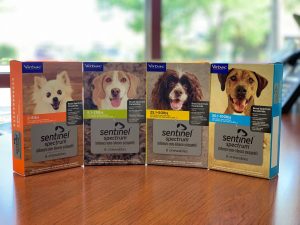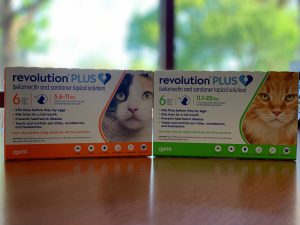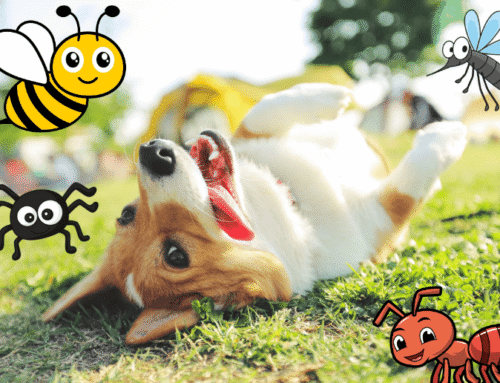Yes, this week is International Scoop The Poop Week! Some may question the importance of this week. Aside from being a smelly fly attractant, dog and cat feces can pose a human health risk, and serve as a reservoir for disease and parasite infestation. Pet waste is considered a Nonpoint Source Pollution (NPS) which produces harmful effects on our drinking water supply, fisheries, and recreational water. This form of pollution is the leading cause of water pollution in the United States, according to Wikipedia.
Humans are ultimately responsible for removing this source of waste… but what makes it so harmful?
Answer: Parasites… our pets and local native animals, like raccoons, harbor numerous species of intestinal worms. As pet owners, we need to be aware of these parasites.
The most common types of parasites are: Hookworms, Roundworms, Whipworms, Tapeworms, and Coccidia. Most of the clinical signs of these worms are seen in young puppies and kittens or immuno-compromised pets.
- Hookworms can cause a serious health risk because they attach to the intestinal walls of our pets and leach away nutrients and blood leaving behind anemia and a debilitated pup/kitten.
- Roundworms do not attach to the intestinal wall, but can clog the intestinal tract resulting in a pot-bellied appearance and general unthriftiness . The adult worms can reach 5 inches long and can also appear in vomit of infected animals.
- Whipworms, a canine parasite, can produce intermittent diarrhea and can be difficult to diagnose.
- Tapeworms come from infected fleas and steal nutrients from the animal’s body. These large, segmented parasites cause weight loss and disrupt normal body functions, resulting in poor health quality of patients.
- Coccidian parasites from fecal contamination can cause severe diarrhea in the young or immuno-compromised.
How do our pets get all these parasites?
Pets can be exposed in a variety of ways. They can become infected through contact with infected feces, either through ingestion or skin penetration. Some parasites can be transmitted from the mother to offspring, either directly across the placenta or through the milk (hookworms and roundworms). Parasites can also be transmitted to your pets through intermediate hosts such as fleas, rodents, and snails.
Can people get these too ( ZOONOSIS)?
For zoonotic concerns, parasites are capable of transmission through the stool of animals. The two most common parasites found in feces are Roundworms (Ascarids, ex. Toxocara spp) and Hookworms (Ancylostoma spp) . Of the two, Roundworms can potentially cause the most traumatic effects in people. Exposure to these parasite eggs can occur when people, especially children, come in contact with affected soil, like public parks (sandboxes), cities, or animal breeding areas. Fecal oral transmission allows these parasites (Toxocara spp., Bayliscaris spp. eggs) to enter our bodies. These eggs can stay viable in the soil for years! People contract visceral larval migrans, with possible granulomatous lesions occurring in the liver, lungs, kidney, brain, or eyes. This condition, though severe, can be avoided with good hygiene procedures and avoiding areas where pets or raccoons defecate. In the US approximately 14% of people have been infected with Toxacara spp.
Hookworms (Ancylostoma) can cause severe anemia in pets, but in humans, cutaneous larval migrans result. This occurs when eggs in the soil hatch into larva, and penetrate human skin. This is also called “creeping eruptions” as they appear as linear, tortuous, intensely itchy skin lesions. Most encounters occur in sandy soil like beaches. Specifically, just above the high water line. Another exposure site can occur when occupations call for working under homes where pets go to defecate. This disease is treatable, but also preventable with regular dewormings of pets and avoiding skin contact with contaminated soil.
How we prevent intestinal pet parasite infestations?
The great news is we are here to help you avoid pet parasites every step of the way! As puppies and kittens, your pets come to our clinics and receive pet fecal checks. During these checks at the vet near me, we screen for these microscopic eggs. Then, your pet is given appropriate dewormings until the stool samples are repeatedly negative for the eggs. To ensure your pets continue to be cleared of intestinal parasites, we give our canine patients Sentinel Spectrum, and our feline patients Revolution Plus. Both of these products help protect against heartworms and flea infestations. These preventives are given every 30 days to protect against these common parasites. So, although we cannot prevent our fur babies from coming into contact with these parasites, we CAN kill them immediately and effectively through purge deworming every 30 days!









